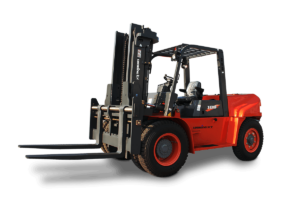
Labrador Retriever puppies are known for their friendly nature, intelligence, and playful energy. However, one of the most common challenges faced by Labrador puppy owners is the tendency to chew everything in sight. Whether it’s shoes, furniture, or electrical cords, a Labrador puppy’s curiosity often leads them to gnaw on various items.
If you’re a first-time owner of Labrador Retriever puppies in Santa Rosa or are considering bringing one into your home, understanding why they chew and learning how to stop it is crucial to having a happy and well-behaved puppy. Let’s explore the reasons behind the chewing behavior and provide effective tips to curb this natural yet sometimes destructive habit.
Why Do Labrador Puppies Chew?
Chewing is a natural behavior for puppies, but for Labrador Retrievers, this tendency can be more pronounced due to their high energy and inquisitive nature. As a Santa Rosa Labrador breeder can tell you, chewing is a part of a puppy’s development, and understanding the reasons behind it can help you address the behavior effectively.
1. Teething
Like human babies, puppies go through a teething phase where their baby teeth fall out and their adult teeth come in. This can be an uncomfortable process for puppies, and chewing helps soothe their sore gums. Labrador puppies are particularly prone to teething because they tend to grow quickly and may experience discomfort earlier than some other breeds.
- Tip to Stop It: Provide appropriate chew toys that are designed for teething puppies. These toys are made of safe materials and can help satisfy your puppy’s natural urge to chew without damaging your belongings.
2. Exploring the World
Puppies are curious by nature, and Labrador puppies are no exception. They use their mouths to explore the world around them. At this stage, they’re learning about their environment and testing what’s safe and what isn’t. Chewing is simply part of their learning process.
- Tip to Stop It: Supervise your puppy closely and redirect their attention to safe, designated chew toys when they start chewing on inappropriate objects. Positive reinforcement for chewing the right items will encourage good behavior.
3. Boredom
Labrador puppies are highly energetic and require a lot of stimulation. If they’re not getting enough physical or mental exercise, they may resort to chewing as a way to entertain themselves. Boredom-induced chewing can quickly lead to destructive behavior, especially when your puppy is left alone for long periods.
- Tip to Stop It: Ensure that your puppy is getting enough exercise and mental stimulation. Interactive toys, puzzle feeders, and daily walks will keep your puppy engaged and reduce the likelihood of destructive chewing due to boredom.
4. Anxiety or Stress
Chewing can also be a sign of separation anxiety, especially when puppies are left alone or experience changes in their environment. Labrador puppies are known for their affectionate nature and can become anxious when separated from their owners or when they are in unfamiliar situations.
- Tip to Stop It: If your puppy is chewing due to anxiety, consider crate training or leaving them with calming toys that can help them feel secure. Gradually increasing the time your puppy spends alone can also help them adjust to being on their own.
5. Hunger or Nutritional Deficiencies
If your puppy is not getting enough food or the right nutrients, they may chew on non-food items as a way to satisfy their hunger. Labrador puppies, in particular, have a high metabolism and require proper nutrition to support their growth and energy levels.
- Tip to Stop It: Make sure you are feeding your puppy a well-balanced diet appropriate for their age and size. If you suspect that nutritional deficiencies are causing the chewing, consult your vet to ensure you’re feeding your puppy the best food for their health.
6. Instinctual Behavior
Labradors are working dogs, originally bred for retrieving. Chewing may be an instinctual behavior linked to their hunting and retrieving roots. Even though they may no longer be working dogs, this instinct can still manifest in the form of chewing.
- Tip to Stop It: Regular exercise and training can help channel your puppy’s energy into more productive behaviors, such as fetch, retrieving toys, or learning new commands.
Tips to Stop Labrador Puppies from Chewing
Now that we understand why Labrador puppies chew, let’s look at some effective ways to stop this behavior and ensure that your puppy grows into a well-behaved adult dog.
1. Provide Proper Chew Toys
One of the best ways to curb your puppy’s chewing behavior is by providing them with appropriate chew toys. Ensure that the toys are safe, durable, and sized for your puppy’s breed and age. Toys such as rubber bones, teething rings, and durable plush toys can satisfy your puppy’s chewing urge while protecting your furniture.
2. Create a Safe and Stimulating Environment
As mentioned earlier, puppies chew out of curiosity or boredom. To prevent destructive chewing, create a safe, stimulating environment for your puppy. Keep your home free of accessible items they shouldn’t chew, such as shoes, wires, and furniture. Use baby gates or crates to limit their access to certain areas when you’re not around to supervise.
3. Offer Positive Reinforcement
When your puppy chews on the right things, be sure to praise and reward them. Positive reinforcement helps reinforce good behavior and will teach your puppy that chewing on toys is an acceptable outlet for their natural urges. Rewards can include treats, affection, or playtime.
4. Establish a Consistent Training Routine
Consistency is key when it comes to training a Labrador puppy. Set up a daily routine that includes training sessions, walks, playtime, and rest periods. Use commands like “no” or “leave it” when your puppy chews on inappropriate items and redirect their attention to their toys. Patience and persistence are essential when training a puppy.
5. Use Deterrents
If your puppy continues to chew on furniture or other household items, you can use safe deterrents to discourage the behavior. Sprays such as bitter apple or citrus-based products can make chewing on certain objects less appealing to your puppy. Always ensure that any deterrent is safe for pets and will not harm them.
6. Visit a Veterinarian or Trainer
If you’ve tried several strategies and your puppy’s chewing persists, it may be helpful to consult with a veterinarian or professional dog trainer. A vet can rule out underlying health issues that might be causing excessive chewing, while a trainer can help you with more advanced training techniques to stop the behavior.
Final Thoughts
Chewing is a completely natural behavior for Labrador Retriever puppies Santa Rosa, and while it may seem overwhelming at times, it can be controlled with the right approach. By understanding why your puppy chews and implementing these helpful tips, you can prevent destructive chewing and help them grow into a well-behaved adult dog. Remember to provide plenty of appropriate chew toys, offer lots of exercise, and be patient as your puppy goes through the teething process.
If you’re thinking of adopting a Labrador puppy, whether from a Santa Rosa Labrador breeder or elsewhere, you’re choosing an intelligent and loving breed. By addressing chewing early on and offering positive reinforcement, you’ll build a strong foundation for a long and happy relationship with your furry companion. With time, dedication, and consistency, your Labrador puppy will outgrow this chewing phase and become the well-behaved dog you’ve always wanted.




